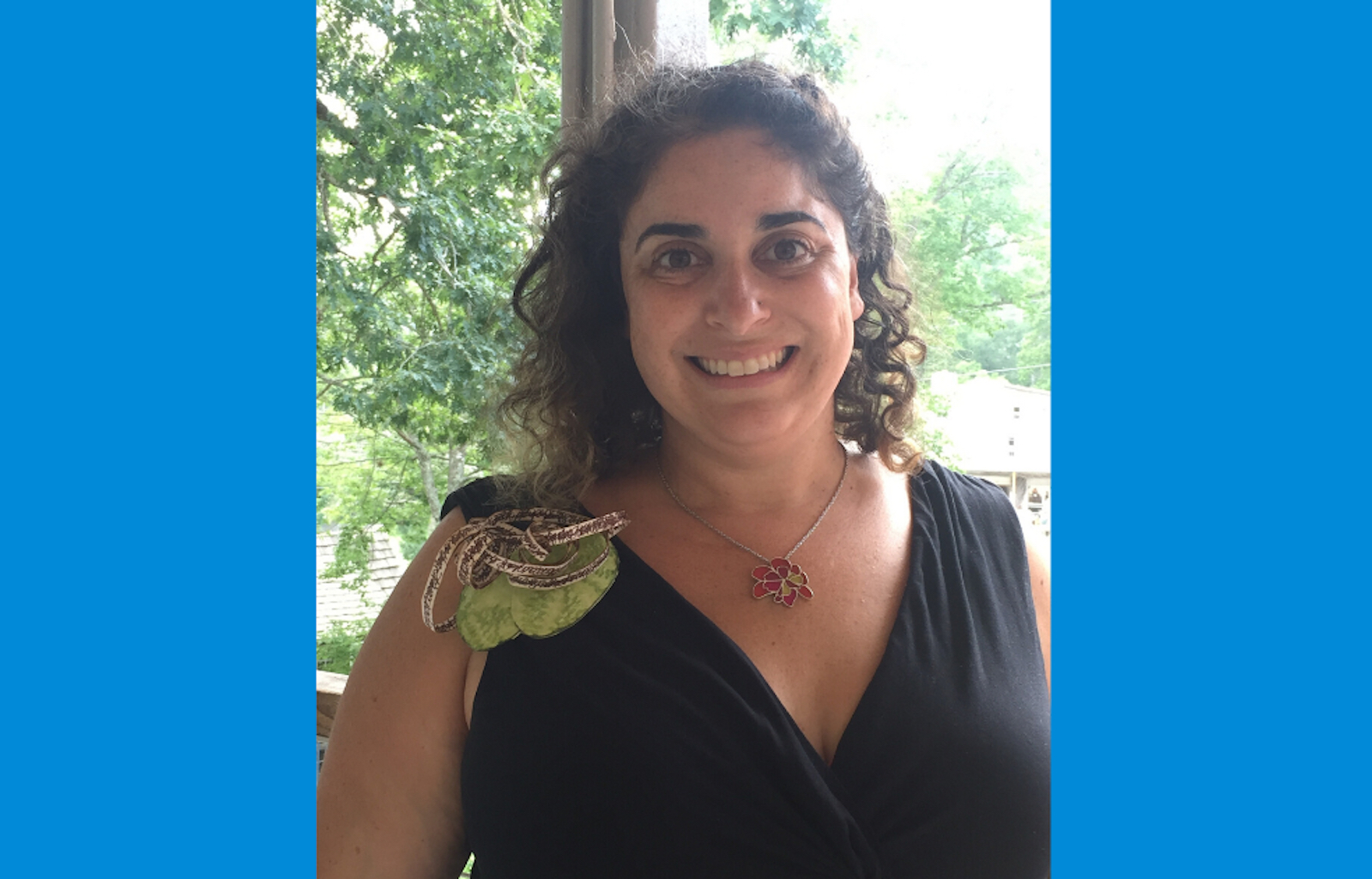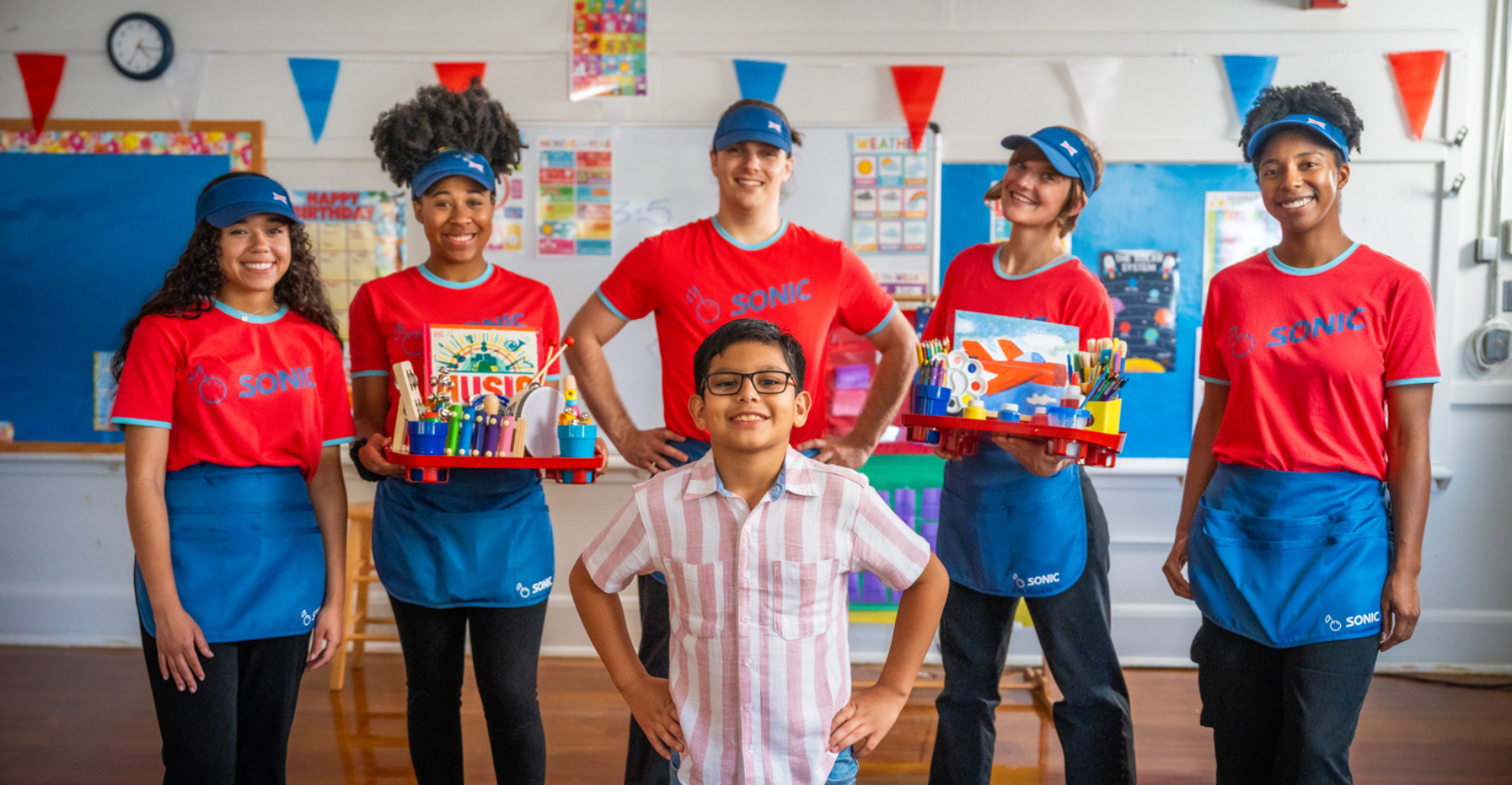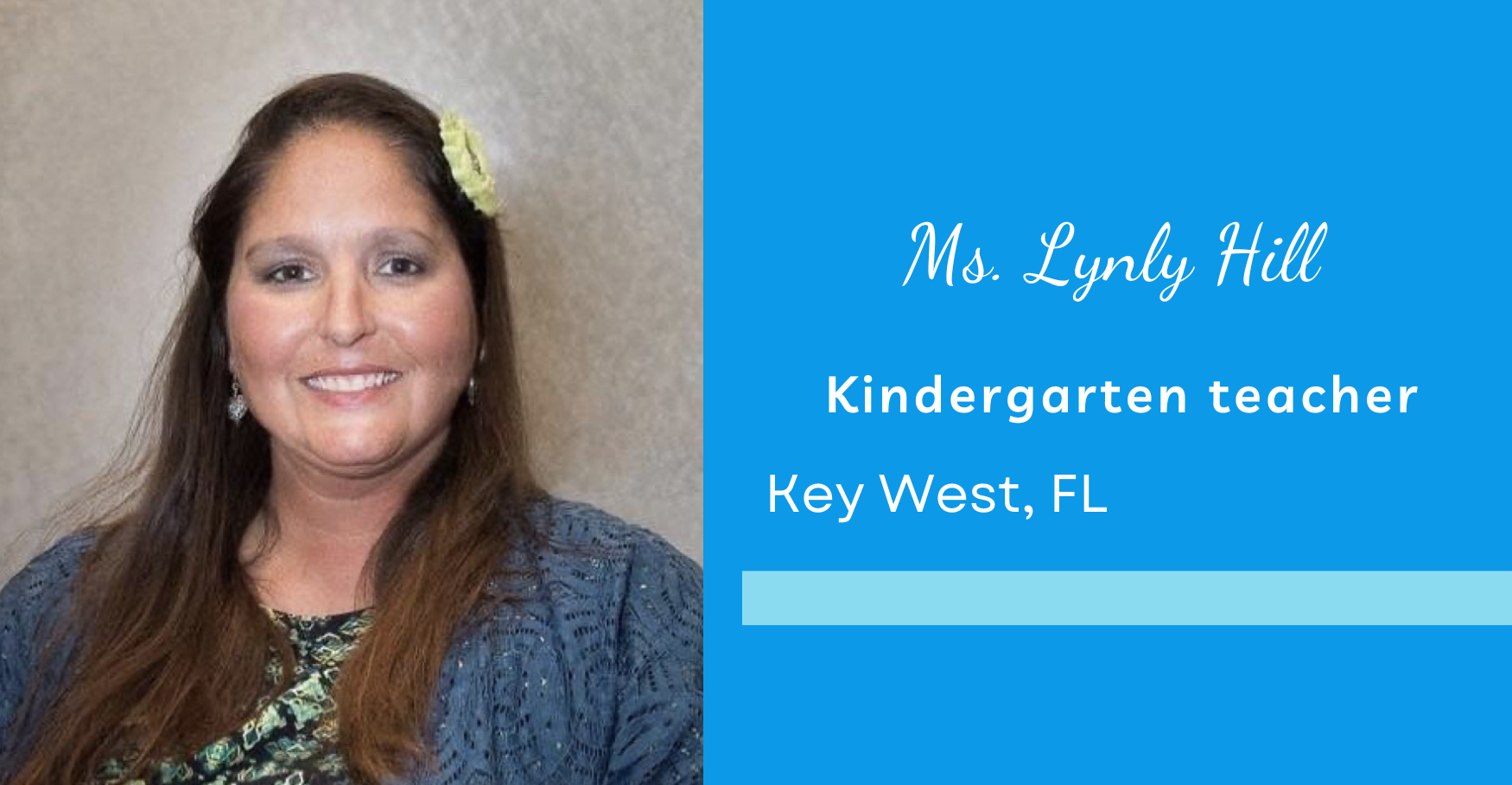As a high school art teacher who faced the newness of distance learning head-on, Mara Friedland, SONIC’s Teacher of the Month, has worked with her students to think creatively and resourcefully. In addition to providing students a creative outlet through art, Mara places importance on fostering strong relationships with students and cultivating a comfortable and safe environment. Learn more about Mara and her students, how they have worked with one another to transition to new forms of learning, and how supportive community members and programs like Limeades for Learning can help.
- Location: Troutdale, Oregon
- Subjects: Art
- Grade Levels: 9-12th
- Years of Teaching: 19
Who or what inspired you to become a teacher?
Education and the excitement of learning was instilled in me from a young age. I am lucky to come from a long line of teachers—both grandmothers were educators, my mom retired after 43 years of teaching and my sister is currently a teacher.
What is the most rewarding part of your job?
I love watching students find their confidence and discover their own artistic abilities. It is wonderful to see the “sparks fly” as a student harnesses their creativity and realize that although not everyone will become a professional artist, they can learn to appreciate the arts and a new way to communicate.
What is your favorite project that has received funding from SONIC Drive-In, and why?
SONIC Drive-In has been a wonderful supporter of my classroom, but one of the “basic needs” projects has made a huge difference. Recently, SONIC Drive-In supported my need for watercolor pencils. Although a basic art classroom material, it was one that was lacking in my school. Many of my students are of low-income [households] and have not had access to brand new colored pencils. It was amazing to see the care and enjoyment the students had as we opened the boxes and used the freshly sharpened materials. The pride the students took in their artwork was apparent, and it was based on having great materials to create their artwork.
Given the current situation educators and communities across the country are facing, what do you and your students most need now?
COVID-19 has thrown a huge curveball into education as a whole. I think the main thing needed is compassion for teachers who are trying to reinvent how they teach to an online platform, and for students who are trying to cultivate their creativity while they have many outside factors influencing their learning.
What is a bright point of your and your students’ day?
As many of my students do not have art supplies at their homes, and we are focusing on equity, students and I are discovering “alternative mediums” to create work. We have had online discussions and students have submitted assignments of paintings created with instant coffee and soy sauce and mandalas of household objects. It has been wonderful for students to see that everyday objects can be art mediums.
How can programs and community members best support teachers now?
Compassion for the newness we are all facing. Most teachers were not “online teachers” until recently and have spent countless hours learning technology to assist our students. Long term funding is also appreciated, for the hours teachers have put into our work and to purchase supplies for students.
What is the best teaching advice you’ve received?
“The day that you plant the seed is not the day you eat the fruit.”
Although you may not see the difference you are making in someone’s life at the very moment, it is exciting to think that you are making a difference for them in the future. The greatest gift in teaching is having a student return and letting you know that you showed them a new way to venture into the world.
What advice do you have for fellow educators during this time?
Students are resilient and will be able to make up the educational aspect of this time away from the classroom. More important is the continued relationships and creation of a place that students feel comfortable and safe, to share their creative works and to know that there is someone who cares for their wellbeing.
Why are programs like Limeades for Learning important to public school teachers like you?
Limeades for Learning is incredibly important for teachers for assistance with needed supplies, and even more so because the program involves communities. It is important for the community to feel involved in education and support how they are able.



